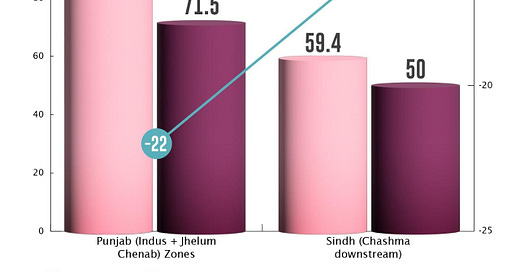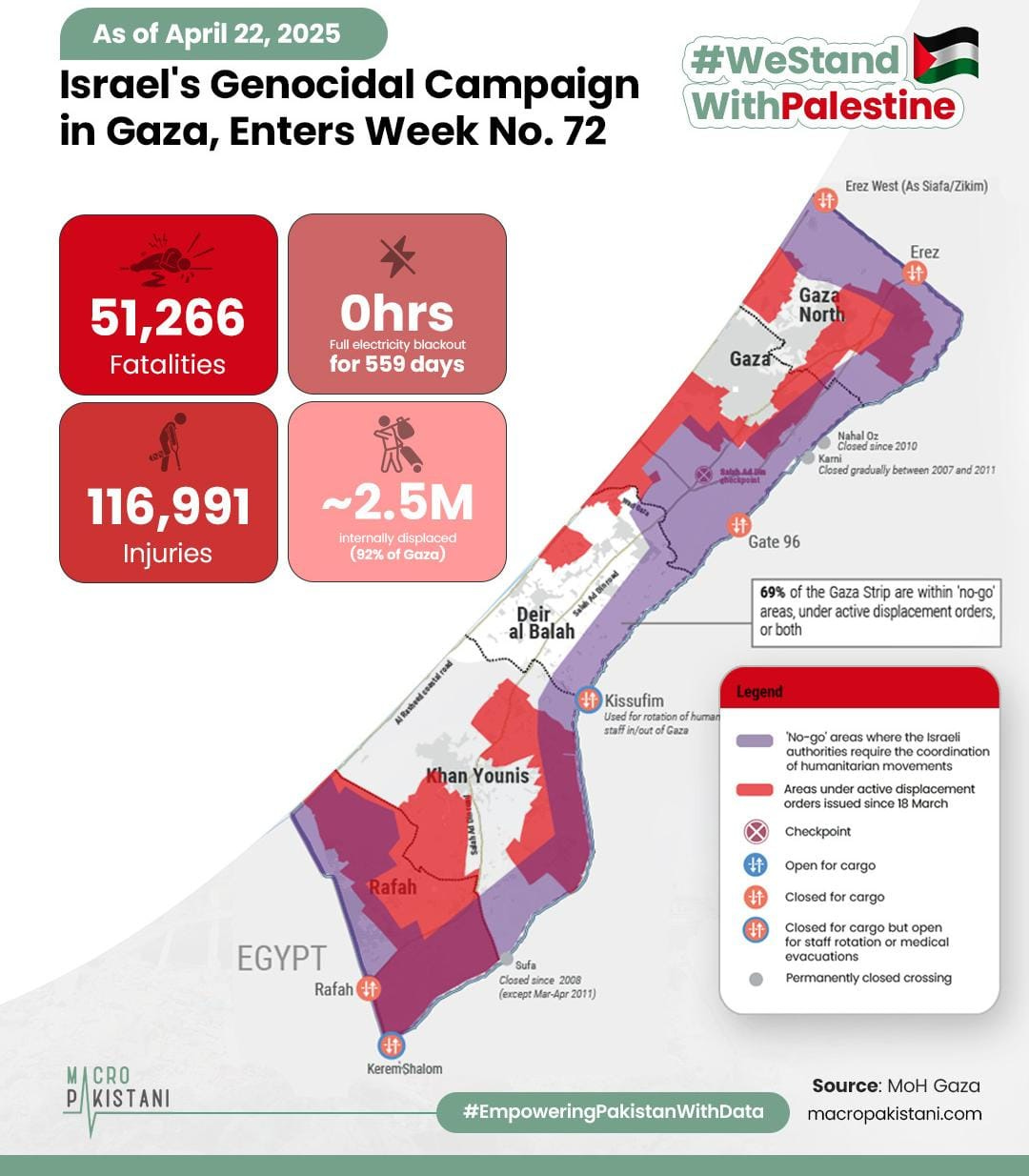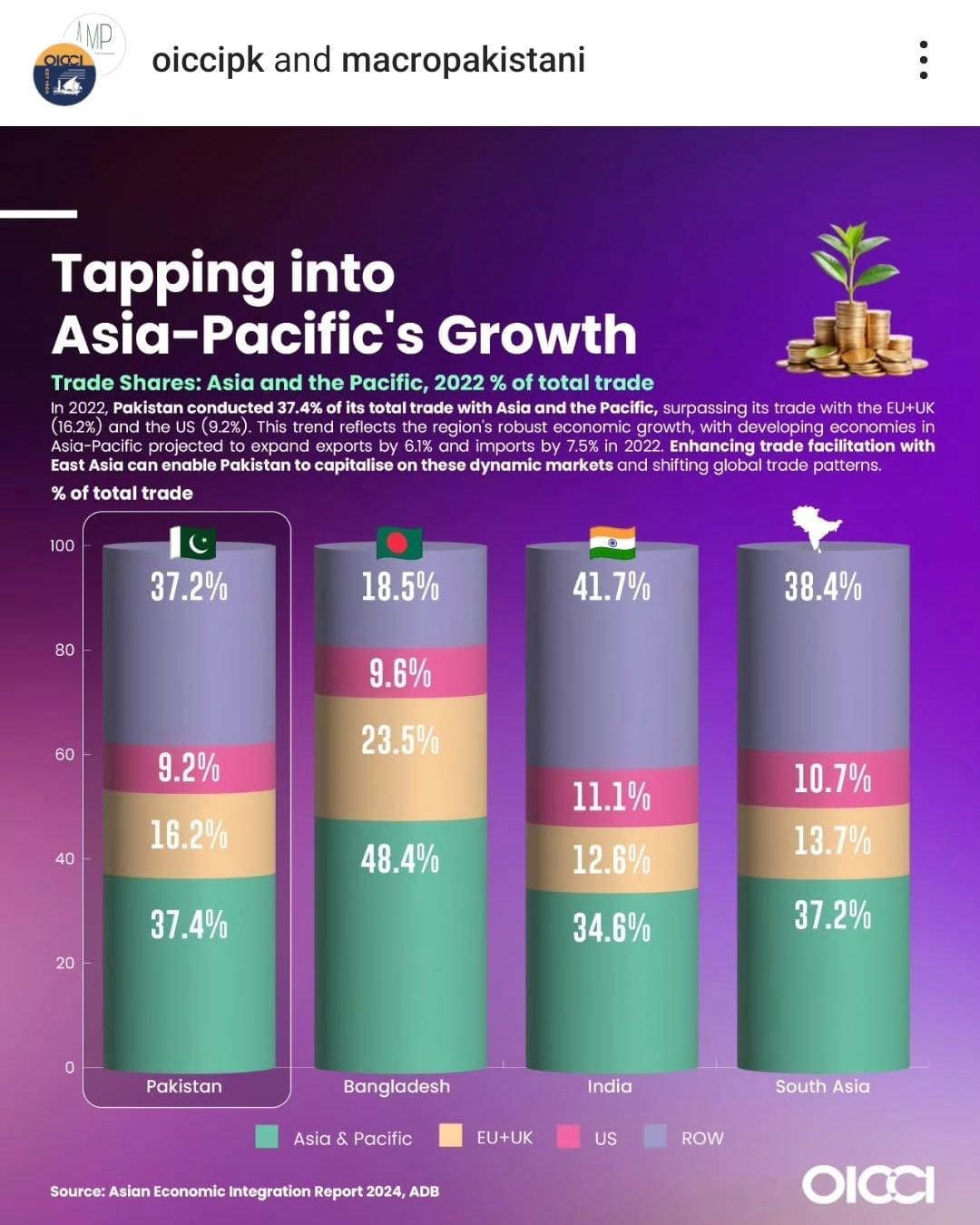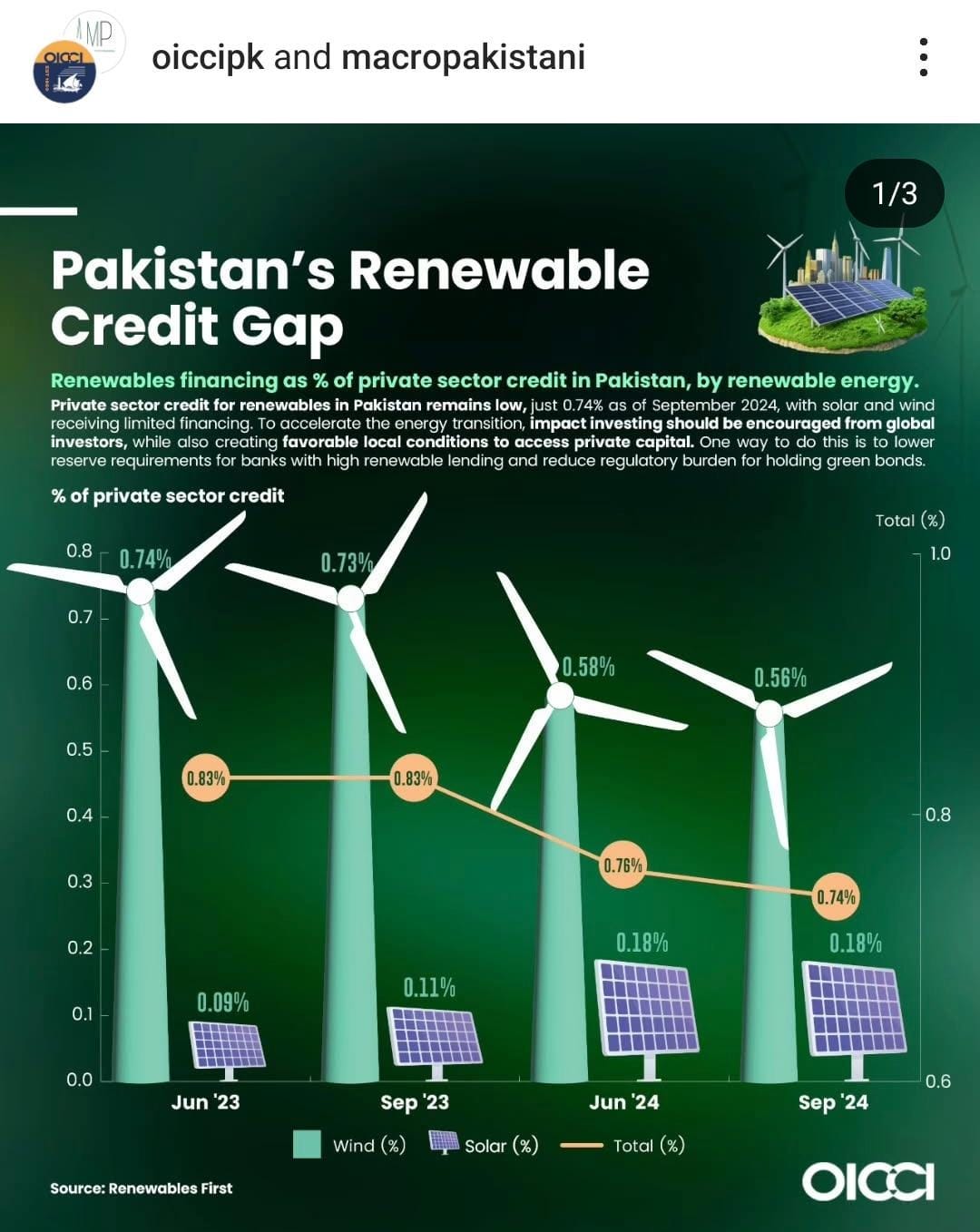Indus' Struggles Persist
Since 1999, Indus water flows have dropped by 30%, while Pakistan retains only 10% of its water. India’s growing threats further endanger the escalating water crisis.

The Indus Basin Irrigation System (IBIS) is Pakistan’s most critical water infrastructure, irrigating 17.2 million hectares, which is over 80% of the country’s cultivated land. It operates through an extensive network of 3 major reservoirs, 16 barrages, 2 headworks, and 12 interriver link canals, developed with an estimated $300 billion in investment over time. Since the Indus Waters Treaty of 1960, Pakistan has relied entirely on the western rivers making IBIS essential to national food and water security. However, India’s expanding upstream development, including more than 5,000 large dams and controversial projects such as Baglihar and Kishanganga, has intensified concerns over potential disruptions in water flow during dry periods. The recent geopolitical intensity between the two countries further adds salt to injury. These external pressures coincide with internal vulnerabilities, as IBIS remains largely manual, supply-driven, and inefficient, with annual maintenance costs of 102 dollars per hectare and significant water losses due to unlined canals. In this context, strengthening and modernizing IBIS is as important as the foreign policy Pakistan adopts to deal with the issue.
Around 80% of farmland in Sindh relies on its flow. In March 2025, Sindh faced a record 52.75% water shortage overall, with Sukkur Barrage experiencing a 69.8% shortfall. These shortages have already disrupted Rabi crops like wheat and sugarcane and threaten early-sown Kharif crops, especially cotton. With Tarbela and Mangla dams at dead levels and groundwater mostly brackish in Sindh, any Indian move to block or manipulate water under the Indus Waters Treaty could intensify existing stress on agriculture, deepen economic losses, and push farmers toward climate-driven displacement. India can technically restrict the flow of water from the Indus, Jhelum, and Chenab rivers but cannot fully block it due to the Indus Waters Treaty (IWT) and structural limitations. While India has infrastructure on these rivers, it cannot stop the flow entirely, especially during high-flow seasons. Any attempt to do so would violate the treaty and could lead to legal and diplomatic consequences.
Water scarcity is already a pressing issue, with per capita availability dropping below 1,000 cubic meters. It threatens crop production, exacerbates rural poverty, and undermines the Green Pakistan project. Pakistan must realize that this is the time to look inward to protect its water and its people. In addition to fighting on the global stage, there is an eminent need for investments and strategies to mitigate the emerging water crisis.
GRAPHIC
The Israeli Occupation Forces (IOF) estimated that it needs an additional 10 billion shekels (USD 2.7 billion) to continue the genocidal campaign in the besieged Gaza Strip and to expand it with large-scale ground operations.
According to the latest report, the security establishment in Israel has in recent days calculated the additional costs of extending and expanding the war, which could involve conquering about 40% of the Gaza Strip in the coming weeks to enhance the security of illegal settlements near Gaza and West Bank.
In 2022, Pakistan conducted 37.4% of its total trade with Asia and the Pacific, surpassing its trade with the EU+UK (16.2%) and the US (9.2%), reflecting the region's robust economic growth. Developing economies in Asia-Pacific were projected to expand exports by 6.1% and imports by 7.5% in 2022, highlighting the importance of enhancing trade facilitation with East Asia to capitalize on dynamic markets and shifting global trade patterns.
Private sector credit for renewables in Pakistan remains low, with just 0.74% of private sector credit directed towards solar and wind as of September 2024, limiting the financing available for the energy transition. To address this, impact investing should be encouraged, especially from global investors, while also creating favorable local conditions to unlock private capital.
Data Visualization & Marketing Partner: Brand Nib
Visit: https://macropakistani.com/advertise/
Grateful for the ever-growing list of collaborators!
About Us: Macro Pakistani is a data-driven research platform that aims to provide a basic understanding of Pakistan’s economy. If you have an interest in contemporary news but are currently overburdened with sensationalism and specialized vocabulary, we are the platform for you.
How are we doing? Please send us any questions, comments or suggestions by replying to this email.






